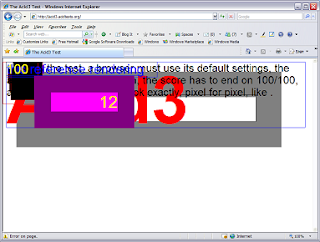Is it stuff, or is it fluff?
Yup. What's it really worth? That stuff you've collected over the years? People will debate this topic like, forever. Compare, a 1946 Austin 7 against a 2008 Ford Falcon. Just doesn't compare. One goes faster than the other. One uses less petrol than the other. One is a darn sight easier to repair - guess which one. Yet will you find the ardent Austin owner willing to give his precious vehicle up for a modern vehicle instead?
Uh, no.
Then there's just uh, fluff.
A 1995 Pentium I 90Mhz machine with four 72-pin memory slots. It's got four PCI slots, two VESA slot and two ISA slots. It's just been consigned to the tip because it only supports a maximum of 128MB memory, and that's only Fast Page or EDO. No SDRAM support here. Its keyboard controller is shot, though fixable with another chip from a similar machine, it's just an 8042. The internal inbuilt CMOS battery is shot, resulting in the CMOS clock being reset to 01/01/1980 every time it's powered on. Even if the CMOS were to retain the time between power ups, it fails the Y2K test. The hard drive controller doesn't support a hard drive faster than 8.4GB from the BIOS - yep, that's that 1024 cylinder limit kicking in. The CDROM drive is double speed. The floppy drive stopped working about seven years ago and hasn't been cleaned of dust bunnies in nearly that long. The IDE cable only works if it's twisted in a figure eight around the power cable to the hard drive, and even then requires the occasional kick to make sure it stays in place for longer than 15 minutes. Hence the rubber band holding the connector onto the drive. Oh, hang on, that's perished.
At least Linux boots on it. But really, it's for thin client use only. Oh, hang on - NetBSD boots on it too. Remember? NetBSD runs on everything. But definitely time for the recycling plant. Oh, wait a minute, this doesn't conform to ROHO guidelines for minimum levels of exotic chemicals used in the manufacture. So we can't even recycle the components.
Fluff.
Another piece of fluff: a hand scanner with a proprietary 8-bit ISA card that plugs in and only has drivers for Windows 3.1. God, that is SO fluff.
Then, there's my own piece of fluff that I actually still own, because it hasn't canned over yet. It's an XT. Not a true blue, not even close. It has a Hercules card AND a CGA card. It has TWO XT drive controllers, I'm not sure which one works and which one doesn't. I have two 20MB drives. Yes, that's Mega bytes. Not Gigabytes. And they're both MFM. I think the CGA card has a serial port on it too, which leads to a bit of confusion when plugging in the sickly green monitor I still have. It's destined to become a classic, though not a very good example of the class of XTs available. It even provides a 10MHz Turbo!
I'm sure I don't have to provide any more examples.
Are we on to the good stuff yet?
Then, there's stuff. Like the current batch of netbooks coming out. The previous generation of these didn't have much memory, and only had a 2GB SSD drive to store the whole OS onto. Not a lot of room, I think you'd agree. And probably destined to become the year before's fluff. Or hand me downs. Or something like that.
The more modern incarnations however, feature the later Atom processors and a decent amount of drive space. Smaller than a laptop, they also take less power than a typical laptop, yet they have features that most good laptops have, like a crystal clear screen that's literally gorgeous to look at. It's only 1024x600 on an 8.9" screen, but that's still large enough to display documents on and not get eyestrain. It's eminently portable, folding down to not much larger than my FX9750 calculator, but a darn sight more powerful. I'd be happy enough to receive one of these in about four years time, as I've been looking for a machine that I can read ebooks on, type up the odd source code file, or perhaps even listen to some MP3 tunes. Trouble is, I probably won't end up with one, as they'll probably be retained by their owners.
So—what items of fluff or stuff can you provide? How low can you go to provide a horror story of a machine touted as the best thing since sliced bread, yet ten years later (or less) has ended up simply being the biggest lemon of its class? What would be your current dream machine or geek item? Nothing too weird, it might end up being next decade's lemon.
I'd love to hear your comments.


